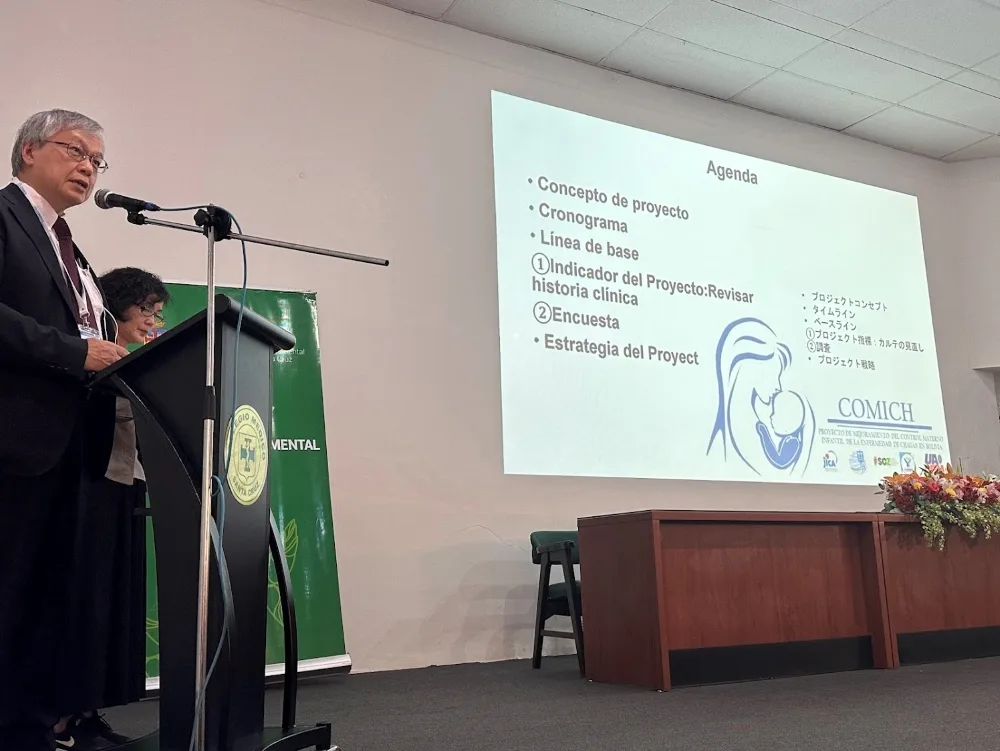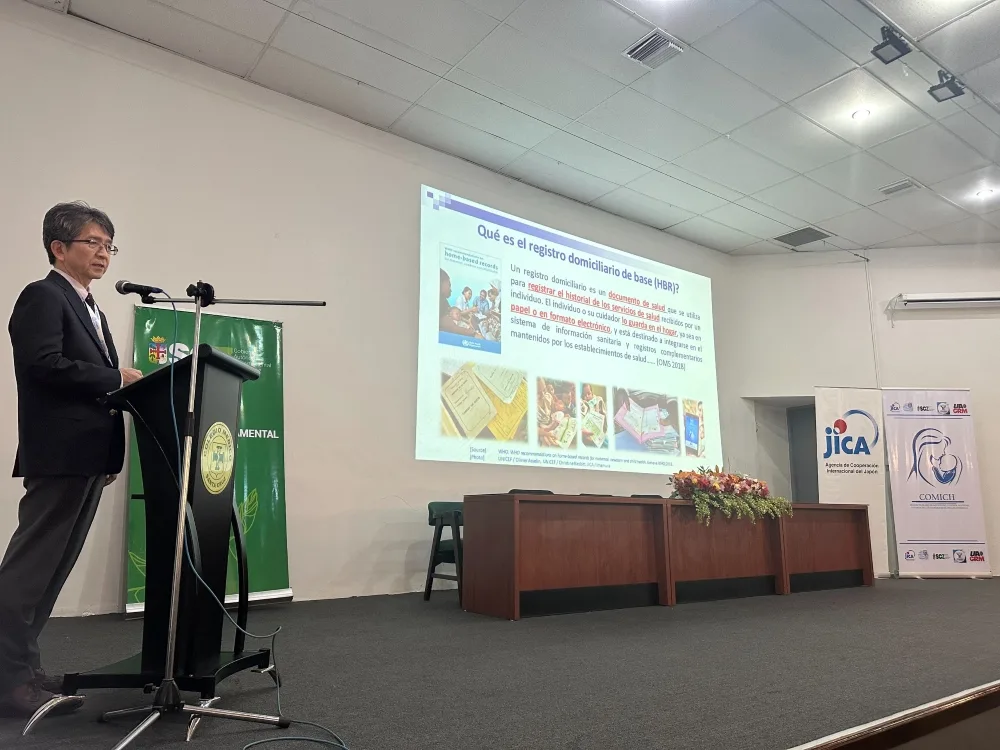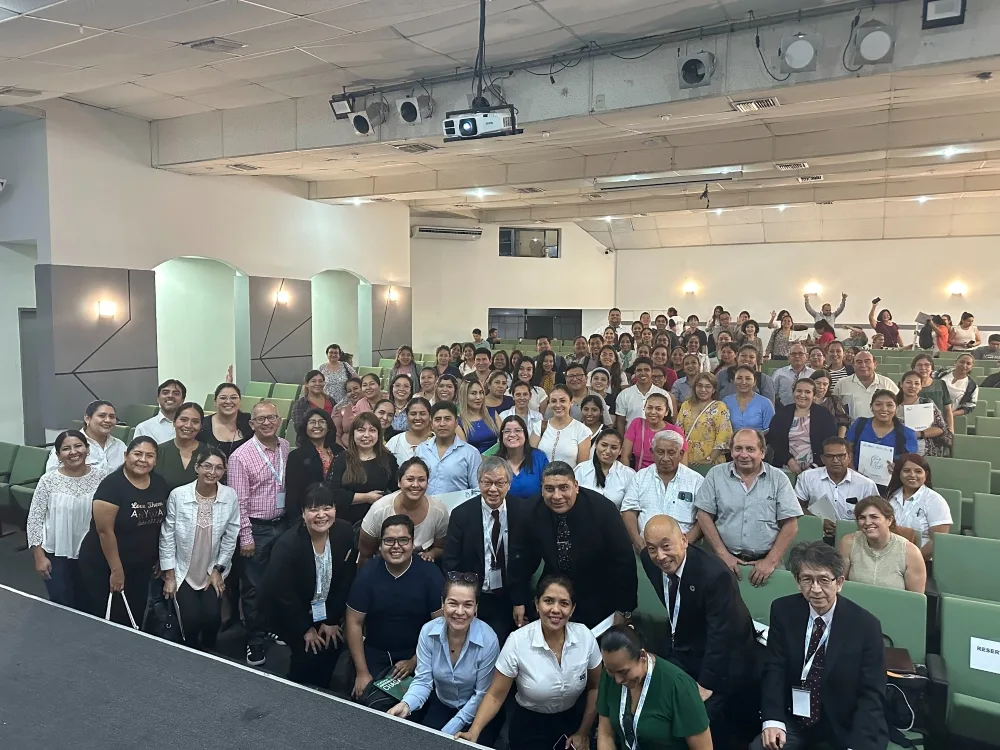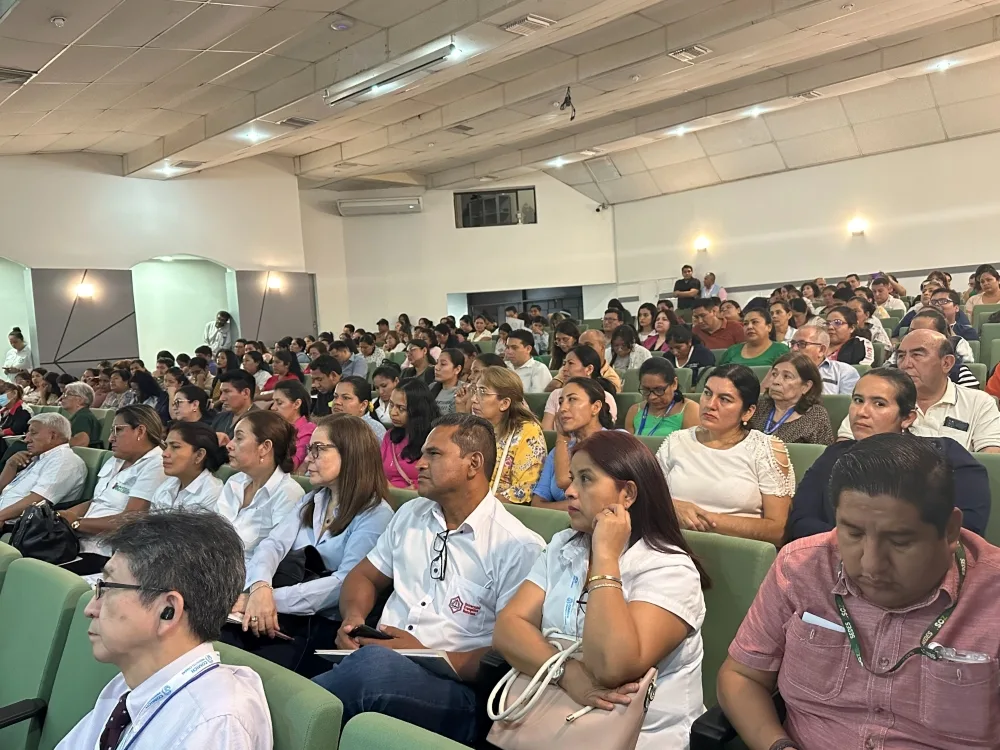

International Seminar Held in Bolivia Entitled ‘TO IMPROVE THE CONTROL OF MOTHER-TO-CHILD TRANSMISSION OF CHAGAS DISEASE IN BOLIVIA.’ Funded by JICA Grassroots Technical Cooperation Program
The School of Tropical Medicine and Global Health (TMGH) has been implementing the Grassroots Technical Cooperation Project (Partnership Type) “PROJECT TO IMPROVE THE CONTROL OF MOTHER-TO-CHILD TRANSMISSION OF CHAGAS DISEASE IN BOLIVIA.” (Control MaternoInfantil de la Enfermedad de Chagas: COMICH Project) since February 1, 2024, under the commission of JICA. The project activities are being carried out in La Guardia City, Santa Cruz Department, Bolivia.
Chagas disease, one of the neglected tropical diseases, is a zoonotic parasitic infection caused by the pathogen Trypanosoma cruzi and transmitted by blood-sucking bugs (kissing bugs). Mother-to-child transmission through the placenta is also a significant transmission route. Based on the number of births in Bolivia, the rate of Chagas-positive mothers, and the percentage of mother-to-child transmission, it is estimated that around 300 to 600 infants are being infected annually.
To review the progress of the first six months of this three-year project and explore future directions, an international seminar titled “For the Improvement of control program of Chagas Disease transmitted from Mother to Child” was held at the Santa Cruz Medical Association Center on Wednesday, September 4, 2024. The seminar was organized in collaboration with the Santa Cruz Department of Health(SEDES), Gabriel René Moreno Autonomous University(UAGRM), and the Santa Cruz Medical Association.
From TMGH, Professor Kenji Hirayama (Project Leader) and Professor Hirotsugu Aiga (Information System Advisor) presented the results of the COMICH project baseline survey, project strategy, and the experience of digitizing maternal and child health handbook in Vietnam. Additionally, 12 key figures involved in the diagnosis, treatment, research, and public health of Chagas disease spoke at the event, including participants from Ministry of Health (La Paz), SEDES, the CEADES Foundation*1 in Cochabamba, the SANIT Foundation*2, as well as international institutions such as ISGlobal (Spain) and DNDi (Switzerland). There was also a presentation on neonatal diagnosis using LAMP technology from Eiken Chemical in Japan and Wiener LAB in Argentina, which are conducting clinical trials on LAMP diagnostic kit through the Global Health Innovative Technology Fund (GHIT fund).
A total of 225 healthcare professionals, including 65 doctors, nurses, clinical laboratory technicians, and pharmacists from the La Guardia Health Center, the project’s site, attended the seminar. After the seminar, participants expressed an appreciation for this highly educational activity.
The COMICH project, which began in February of this year, has started smoothly with baseline surveys and strategy formulation. From October, the project will move into its intervention phase, which includes specialized training for healthcare professionals and the development of an digital information sharing system linking prenatal care facilities, Delivery clinics and Chagas test performing laboratories.
We will continue working with relevant institutions and local partners to improve the control of mother-to-child transmission of chagas disease in La Guardia City in Bolivia.
(We will provide updates on our activities via Facebook.)
※1Fundación Ciencia y Estudios Aplicados para el Desarrollo en Salud y Medio Ambiente (Science and Applied Studies for Development in Health and the Environment Foundation)
※2 FUNDACIÓN SALUD NATURALEZA INTEGRAL (INTEGRAL HEALTH NATURE FOUNDATION)

Professor Kenji Hirayama

Professor Hirotsugu Aiga

